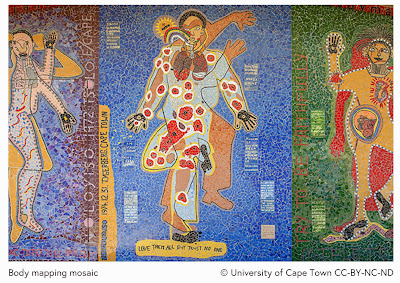I started my first online degree here. It was one of the first of its kind, the Masters in Distance Learning from the Open University in 2001. A false start, with crude online resources, and my own career in tatters. I picked it up again in 2010. I completed my MA in Open and Distance Education in 2013. Started at that time this blog is fast approaching 5 million views.
I have since completed a further MA (albeit entirely face to face lecture and library based) and between FutureLearn, Coursera and OpenLearn a further 27 modules on one subject or another. I’m a mentor on Coursera’s ‘Learning How to Learn’. I recommend those that have tutor, mentor and student interaction. The human element, at least for me, is a vital component for completion. Not all worked, yet again I quit a course on French (a BA with the Open University). Speaking of which I totally recommend Lingvist as the go-to language learning App (I have tried and reviewed all of them). Also, perfect in a world of social distancing, Tandem, which fixes you up with someone like a dating App. (Not that I have any need for or experience of one of those).
Where student interaction is slight we’ve always started our online groups on LinkedIn. The group I set up 10 years ago for swimming teachers and coaches has 1,600 members and is still active. Most endure the length of the module.
Take a look at these online courses, join up with a buddy (you are more likely to complete). Most are free, though the best, and the business orientated ones may cost between £35 and £300. A degree module is now something like £2,000.
30 hours a week I am supporting colleagues and students at Greater Brighton MET. Google Suite for Education is our go to platform. Google Meets are frequent with Google Chat live while I’m at my desk. Last night friends did a 8 or 9 person quiz on Zoom. I promise to wake up my contributions to ‘scenario-based learning’.
I’m keen to get an art class going. I took a set of 360 degree photos in the lovely barn studio at Charleston a few months ago - with the model’s permission to post online. It was a life class so the nudity might result in the thing being barred. I may give this a go ... though any drawing from a flat surface my late mother, an art teacher, would have been against.
Finally, on reflection, exactly 45 years ago I broke my leg badly skiing. A 13 year old between schools I ended up at home for the entire summer term to prevent me from putting weight on my leg. I was sent a box of books with instructions to read them. Without any other efforts at support at all I didn’t do a thing. Instead I got out my Dad’s Readers Digest book on Gardening and spent the next few weeks pulling myself around the garden on a tea tray. By the end of it I was air-propagating specimen rhododendrons.
Take care. Stay in touch 🙂
